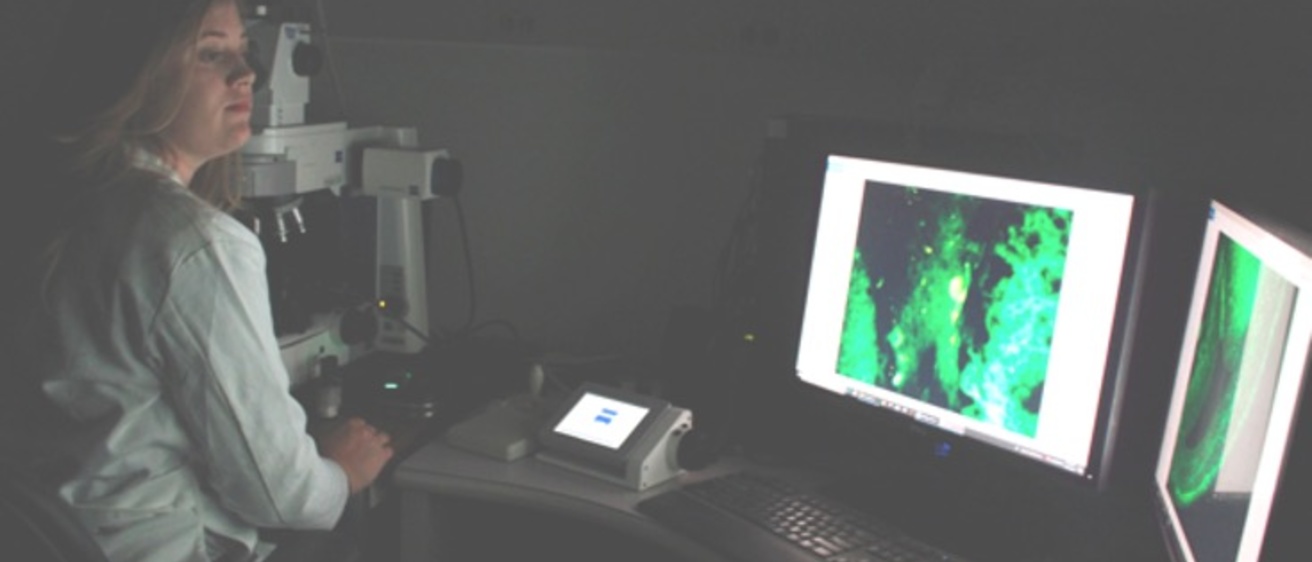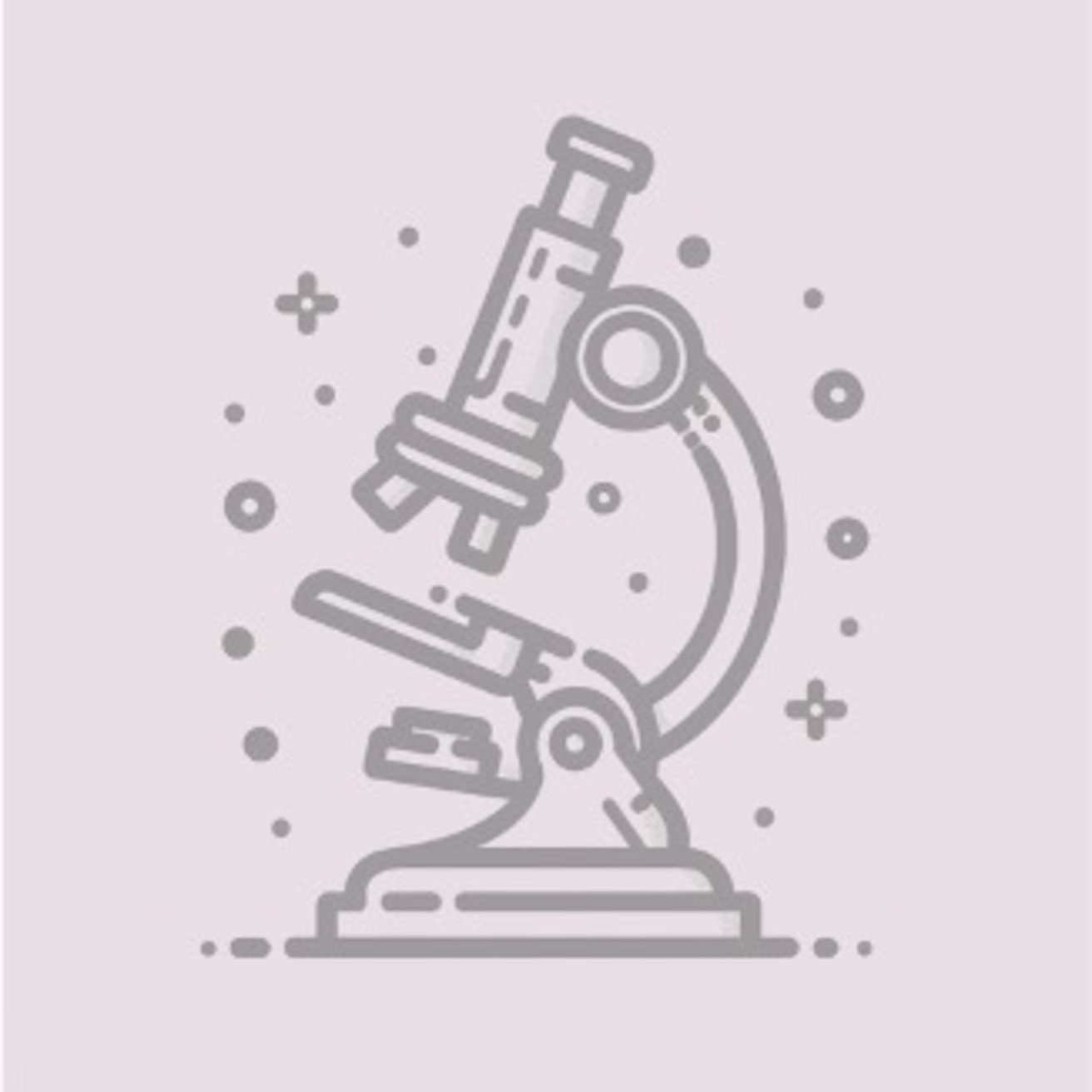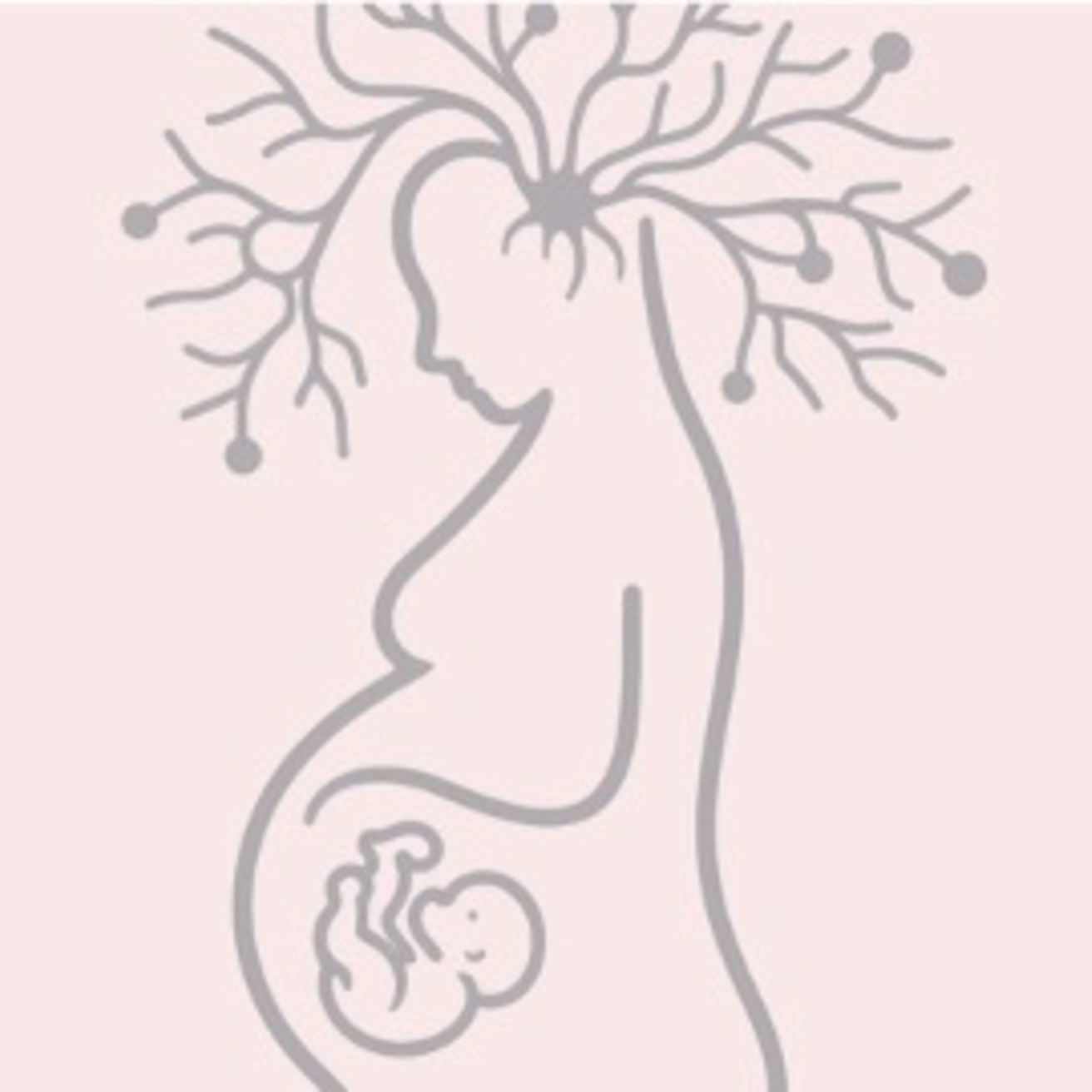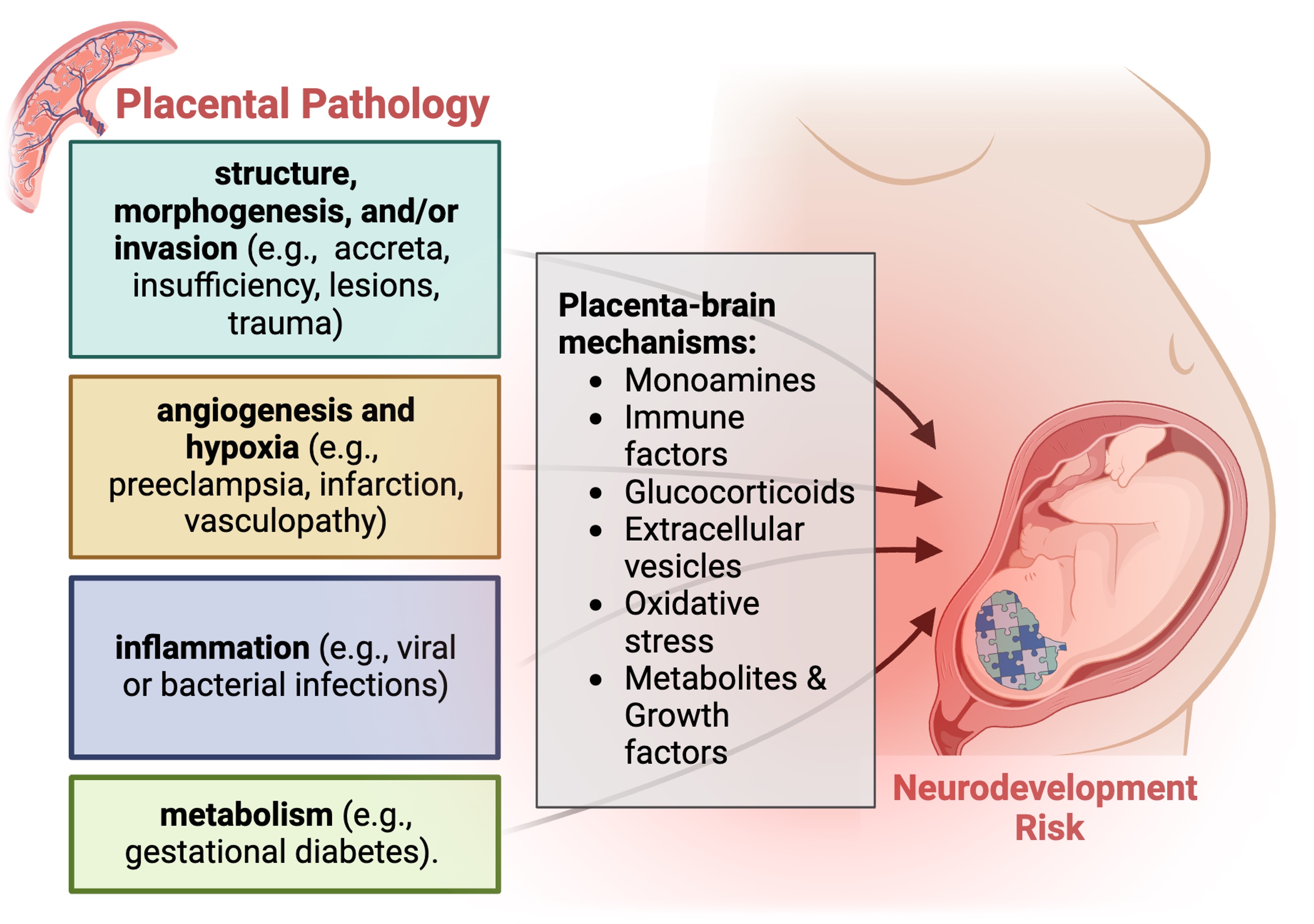
Diseases of pregnancy are linked to increased risk for neurodevelopmental disorders, such as Autism Spectrum Disorder, in exposed children. Diseases of pregnancy also increase risk for psychiatric disorders in birthing people. For example, preeclampsia, a pro-inflammatory hypertensive disorder of pregnancy, is linked to a 3-fold increased risk for peripartum depression, a leading cause of pregnancy-related morbidity and mortality.
MINDFOL is interested in the molecular mechanisms by which conditions of pregnancy, such as high stress, infection/illness, preeclampsia, and others, impact offspring brain development and brain health during and following pregnancy. In particular, the lab studies mechanisms related to extracellular trafficking by the placenta, immune modulation by neurotransmitters, and the impacts of SSRIs on offspring and parental neuroimmunity.
The goal of this work is ultimately to improve the early life detection, prevention, and treatment options available to clinicians and their patients (even before birth!). We utilize a spectrum of experimental approaches, from translational work in human cohorts to in vivo manipulations in animal models and in silico work with large datasets.
Select Projects
Neuroimmune mechanisms in pregnancy
Pregnancy is a time of rapid immunologic and psychopharmacologic change. Together with collaborators in reproductive immunology, we examine mechanisms by which lymphocytes, microglia, and other immune cells respond to and modulate brain function. We also study offspring psychoneuroimmune programming by chronically disturbed neurotransmitters and neuropeptides in pregnancy.
Timelapse image of microglia (green) and cell nuclei (red) in live embryonic mouse brain

Serotonin and psycho-obstetric risk
Serotonin is a central player in both diseases of pregnancy, such as preeclampsia, and in psychiatric disorders like depression. Preeclampsia and depression are linked via bi-directionally increased risk for one another (up to three-fold!). To determine shared mechanisms of risk, we investigate models of disturbed serotonin function with both obstetric and depression-like phenotypes.
Preeclampsia and intergenerational psycho-obstetric risk
Preeclampsia is a multi-organ, pro-inflammatory, hypertensive disease of pregnancy with myriad impacts on offspring neurodevelopment and maternal brain function. Ongoing work in the lab examines placental and peripheral mechanisms by which preeclampsia increases intergenerational psychiatric work. This work leverages animal models of obstetric disease and cellular-molecular approaches to unravel placenta-brain axis mechanisms.
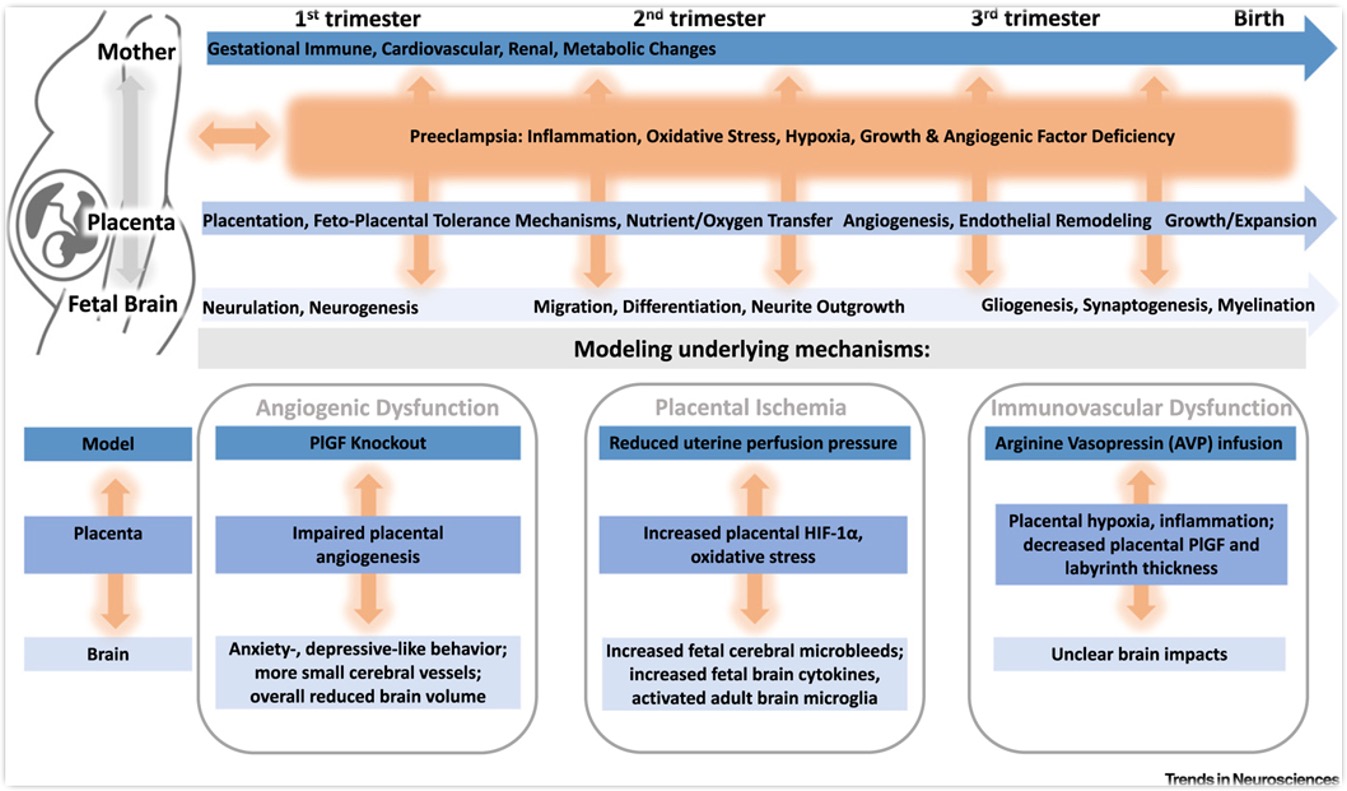
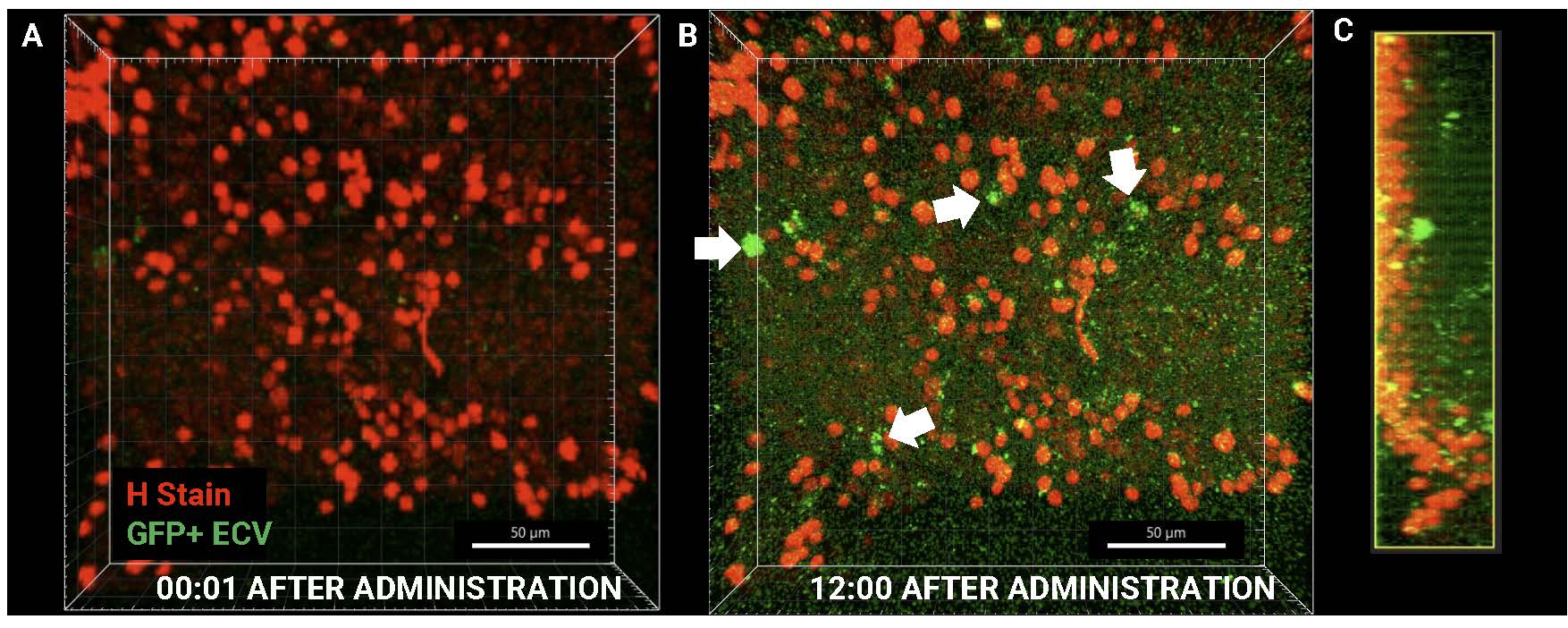
Extracellular vesicles and the brain
Extracellular vesicles (ECVs) are produced in large numbers by the placenta and can cross placenta, intestinal, and blood brain barriers (both maternal and fetal brain). The lab is currently investigating changes to the contents, sources, and impacts of ECVs in diseases of pregnancy and in neurodevelopmental disorders and cerebrovascular disease.
Our Space
Reproductive Science Labs: For our studies in obstetrics, we have dedicated space on the 4th floor of MRF
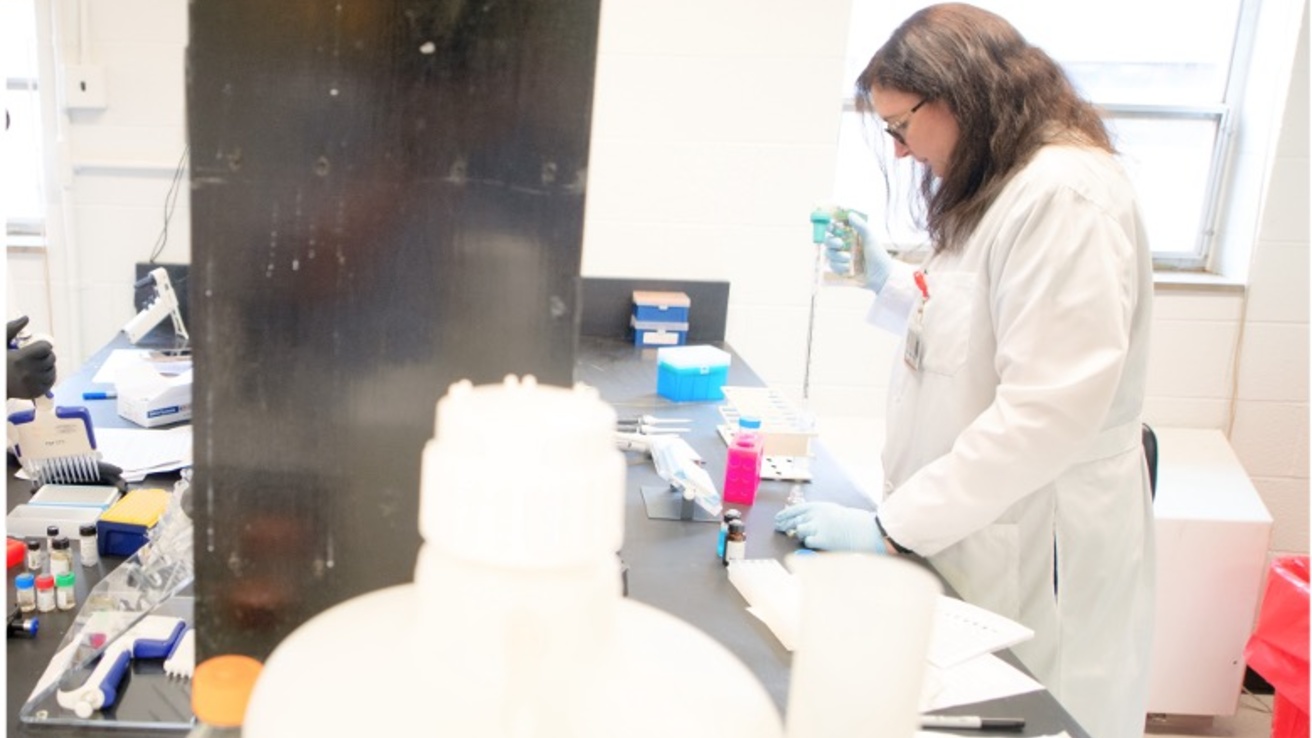
Iowa Neuroscience Institute: Our neuroscience work happens in our lab space on the first floor of PBDB.
Our Methods
Our work is motivated by scientific inquiry and not by application of specific methods. That said, most of our work tends to utilize several core methods:
•Molecular neuroscience (qPCR, Western blotting)
•Cyto and Histopathology (Immunohistochemistry, stereology)
•Immunology (ELISA, flow cytometry)
•Nanopartical analyses (NTA, ultracentrifugation)
•Behavioral and obstetric phenotyping of mice throughout development
To aid us in our studies, we make use of the following resources:
•NCBC (https://ncbc.medicine.uiowa.edu/)
•Metabolomics core facility (https://medicine.uiowa.edu/diabetes/metabolomics-core-facility)
•Iowa Institute of Human Genetics (https://medicine.uiowa.edu/humangenetics/genomics-division)
•ICTS (https://icts.uiowa.edu/)
•Iowa Intergenerational Health Knowledgebase (https://faseb.onlinelibrary.wiley.com/doi/abs/10.1096/fasebj.2022.36.S1.R5732)
•Perinatal Family Tissue Bank (https://medicineiowa.org/fall-2023/iowa-biobank-treasure-trove-maternal-health-data)



